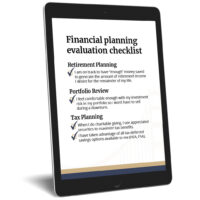
3 reasons business owners should invest outside of their business
How do many business owners continue to grow and manage their businesses? They reinvest company profits back into the business. As financial advisors to many business owners, we have learned from experience how important it is to strike the right balance between your company assets and some diversified investments outside of your business.
While it can be difficult for an owner to take a wider perspective on what this means for their personal wealth, we have identified three main reasons that business owners should invest outside of their business:
1. Financial independence
A successful business is often the biggest source of capital for retirement, either through sale or continuing income. However, some business owners overestimate how easy it will be to sell the business when they want to and the price at which they can sell. There is high risk in relying on this for retirement as it is the ultimate concentrated position in a single asset.
As the adage goes, “Concentration builds wealth and diversification preserves it.” Owners can begin to solidify financial independence by diversifying outside of the business with some type of pension plan, allowing you to save on a tax-deferred basis. Often a SEP IRA is the simplest and most cost-effective for small employers and allows you to defer up to 25% or $56,000 annually (for 2019). While you must also contribute for employees, safe harbor options are available that will make those contributions more predictable. Retirement plans are also a valuable employee benefit helping you retain workers. A SIMPLE IRA is another option for small businesses that allows employee deferrals but is subject to lower savings limits.
2. Protection from inherent business risk
Part of what makes many business owners successful is their ability to take on risk, to thrive in uncertainty and make difficult decisions based on predictions. It is important, though, that what may be a high-risk approach to business does not extend to personal wealth investing.
We look at client risk holistically and take into account other elements of their financial life that may add to the security (or insecurity) of reaching their goals. For business owners, this means looking at the type of business, the consistency of cash flows and exposure to business cycle risks.
We also consider the level of control the owner has in the business as a consideration when we assess acceptable volatility in their investment portfolio. What may be an appropriate asset mix for an executive or professional may not be right for a business owner of the same age and retirement expectations given the risk inherent in their business. We have the option to use the personal portfolio for protection.
3. Emergency preparation
While it is important for everyone to have an emergency fund, this can be especially important for business owners if cash flow from the business is not steady or falters due to unforeseen events. A cash (money market) reserve of a least six months of personal expenses is what we typically recommend. This cash sits outside of the business for personal use.
Having a reserve line of credit, obtained when company cash flow is looking as solid as possible, is also important in case there are timing issues with capital in the business or an extended period of poor performance in the company. All of this assumes that you already have disciplined accounting practices to separate business and personal expenses, contingency plans and insurance in place.
Preserve your wealth
Navigating overall wealth strategy as an entrepreneur is often more complex than it seems, especially when you have a thriving business. While small and mid-size businesses are often the source of considerable wealth for their owners and co-owners, taking a few steps to diversify outside of your business will help you preserve what you have created. This preparation will free you up to keep your focus on your business.
The information provided herein is for informative and educational purposes only. The use of hyperlinks to third party websites is not an endorsement of the third party. Third party content has not been independently verified. To understand how this content may apply to you, please contact a financial advisor.





